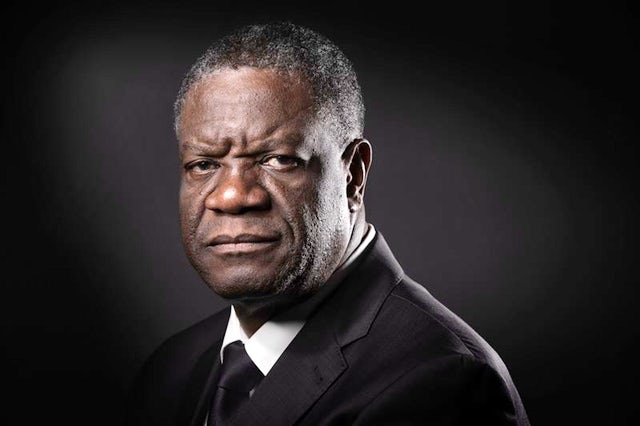Although violence in the hockey sphere is an important issue, I have decided to write about the Issue of the violence in school and the lack of actions taken to stop it. Coming from a high school that some could consider as ‘’dangerous’’, I was thinking that those types of behaviours are rare and represented an extreme minority in schools all around the country. In the first minutes of the documentary only, they proved me that I was wrong with numbers and testimonials that are more than shocking. 1 in 4 girls have experienced unwanted sexual touching, 1 in 7 girls said that they were sexually assaulted, 40 % of boys reported that they have been physically assaulted, etc. Marketplace’s documentary seems to have highlighted some of the problems and relations can be made with masculinity and some of its concepts to try to explain the causes of all this brutality.
The first thing that comes to mind with this documentary is the lack documentation or actions taken, more generally the lack of information on the subject for practically everyone. For example, in the case of boys being attacked. Students do not know what to do, Parents don’t know that such things happen, and Schools seems to voluntarily omit to document incidents. From the students’ perspective, I think that they refuse to talk to adults because it’s often seen as ‘’snitching’’ and getting labelled as a snitch could seriously harm their reputation and make them look like weak. For example, only half of them talks about what happens to them and some of them were told to ‘’toughen up’’ and this is concurring with the concept of the manbox ‘’ Inexpressiveness and Independence’’: Boys are expected to be strong and to be capable of enduring violence or insults without asking for help because boys are supposed to be tough and not suffer from such attacks. It is really a destructive belief as it gives aggressors impunity and the victims are doubly hurt.
But in the case of sexual aggressions, the problem seems to be a little different. When there are cases of sexual assault, not only the victims, mostly women, do not receive the help needed but they are also shamed for something over they had no control and where they were the victims. I personally think that Masculinity and its believes has something to do with it. In Brook’s case, the boy that assaulted her was also reported by two other girls came back to school after only a few days later. Victims feel abandoned by those supposed to defend them to a point where 3 out of 5 girls did not report sexual violence to their school. From what we read in this class It is possible to link it some biased notions. As Kimmel states in his writing ‘’ Masculinity’’: ‘’ The gendered identity of individuals shapes those gendered institutions express and reproduce the inequalities that compose gender identity’’. It is directly seen with the people working in the school where the incident happened. It is a good thing for a man to ‘’conquer’’ women, to get them. The example of Brook illustrates perfectly how even institutions are biased by this notion and are, consciously or not, accomplices of the wrongs done to the victims by not helping them and they reproduce the same demeaning behaviours towards women; unfortunately it is not a isolated case. It is also seen in boys altercation; for example, Jason stated that the principal hears and see things in the hallways but never does anything. It reflects how the assumption that boys will be boys and that fighting, or insulting is a normal and common thing is also anchored in formal institutions. At the end, it only results again in an aggressor’s impunity and a discreditation of the sufferers leading to a feeling of being let down and loneliness.
The aggressors, whether the victim is a boy or a girl, are also following social constructs where they are questioned about their masculinity. In his writing ‘’Defining Men studies’’, Kimmel wrote that ‘’ The combination of Antifemininity and Status and Achievement support the notion that men are inherently superior to women, and thus can be seen as justifications to sexism’’. Boys are taught that being a man means to be unlike a woman and rejects everything feminine. All of those assumption tend to make them think that aggression towards women are justified since they are superior. Those wrongs are also seen in male-male altercations where boys that have been attacked are seen as weak and are often the ones suffering from social repercussion. If a man is seen as weak, he will be compared to a woman and will be suffering from the same prejudices.
In conclusion, Violence in schools is not something rare nor isolated but institutions tend to hide it and do not take the right action in order to stop it. Masculinity and the concepts that revolves around sure have their implications in the problem. Boys have to be strong and not reports violence, Girls do not receive the adequate help after traumatising aggression and are sometimes held responsible as the institutions allows all this unfairness because of their own biases. Acknowledging the problem is already part of the solution but a lot still has to be made and, one step at a time, we will succeed.
Sources:
Kimmel, Michael. “Masculinity.” International Encyclopedia of the Social Sciences. Ed. William A. Darity, Jr. 2nd ed. Vol. 5. Detroit: Macmillan Reference USA, 2008. 1-5. Gale Virtual Reference Library. Web. 9 June 2014. 1-5. Print.
Kilmartin and Smiler. “Defining Men’s Studies.” The Masculine Self, Sloan Publishing, 2019, pp. 1-7, Cornwall On Hudson, Accessed 25 Apr. 2020
“How To Fight For Safer Schools.” School Violence. CBC, 24 October 2019.



